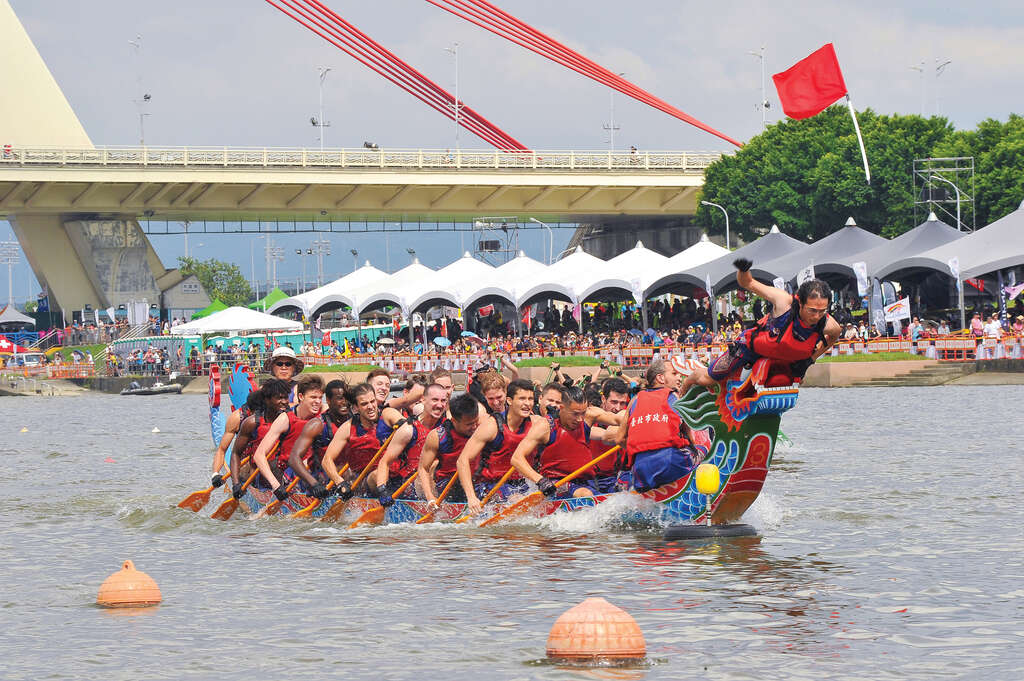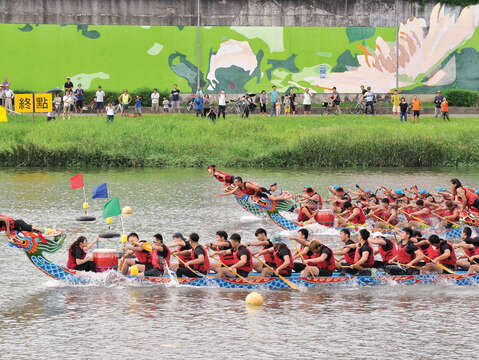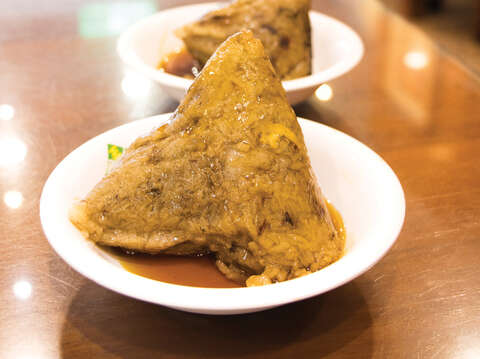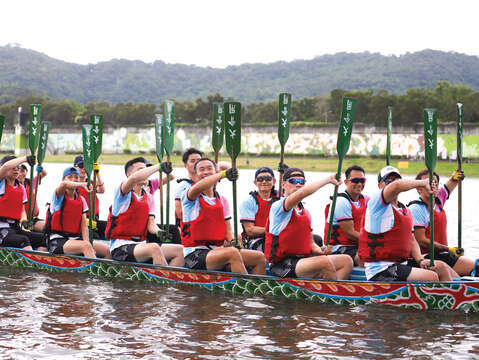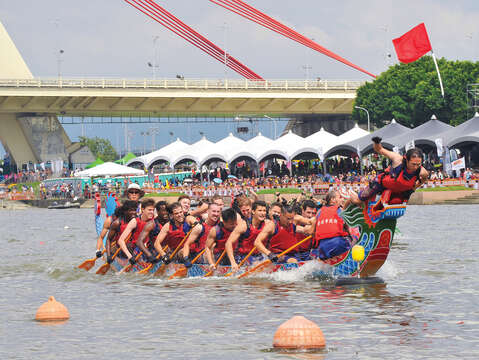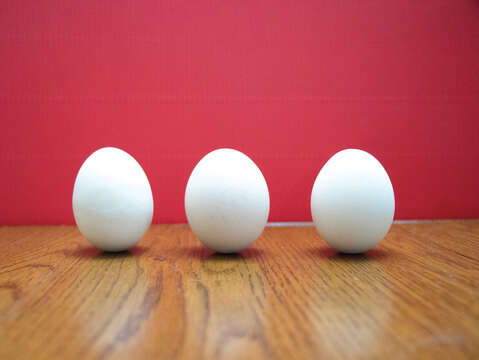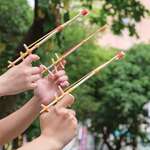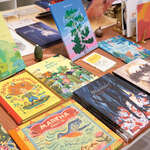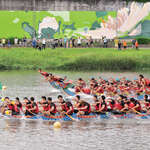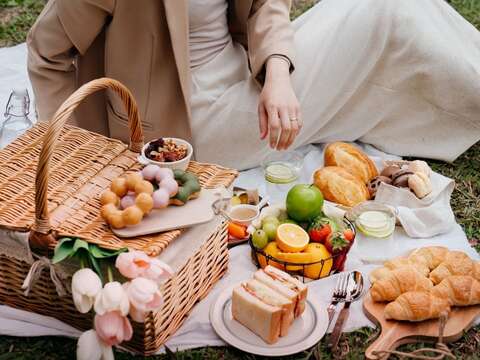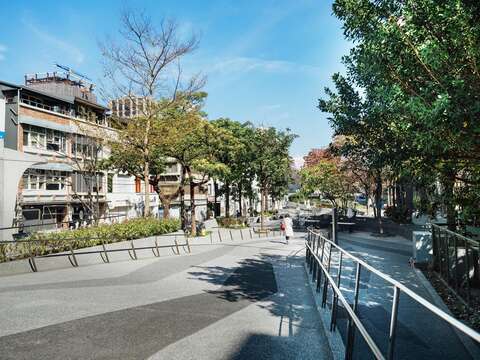Post date:2020-06-12
2232
TAIPEI #20 (2020 Summer)
Your Guide to Taipei's Dragon Boat Festival
Words by: Sebastian Morgan
Photos by: Taiwan Scene, Department of Sports, Taipei City Government
One of four major holidays in the traditional Taiwanese calendar, the Dragon Boat Festival (端午節) offers much more than just a long weekend. With over 2,000 years of history at its bow, this lively annual observance features special food, eyebrow-raising customs, and a unique sports culture found few other places on earth (think rowing with really fancy boats). Taipei, the capital of Taiwan, celebrates the Dragon Boat Festival on a grand scale. Though it remains to be seen how the COVID-19 pandemic will impact this year’s larger celebrations, there will likely be plenty for socially-distant revelers to try, taste, and experience — that and a chance to come to grips with a fascinating facet of Taiwanese culture.
WHEN IS IT HELD?
Also known in Chinese as the Double-Fifth Holiday (雙五節), the Dragon Boat Festival takes place on the fifth day of the fifth month in the traditional lunar calendar. Its Western date varies from year to year, usually being between late May and late June. This year’s celebrations occur on June 25, with large Dragon Boat events going ahead in Taipei.
WHAT’S THE BACKSTORY?
There are various legends surrounding the Dragon Boat Festival’s origins, but the most widely remembered one features Qu Yuan (屈原), a devoted government minister of the Warring States Period (戰國時期 c. 475–221 BC). Qu lived at a time of political instability and was banished from the State of Chu (楚國) on false counts of treason. He then spent 20 years wandering the wilderness, writing poetry and lamenting the corruption of his homeland. Legend says it on the date of May 5, news reached him that the capital of Chu had been captured by a rival kingdom. Heartbroken, Qu drowned himself in a nearby river. Seeing this, some local villagers frantically rowed after the tormented exile to prevent the suicide or at least salvage his body. When they failed to do both, the villagers threw balls of sticky rice into the water, hoping that the glutinous snacks would feed the fish and stop them from eating Qu’s body. The commemoration of this futile recovery mission inspired many of the practices observed during the festival. Nowadays, Taiwanese still hold dragon boat races at the riverside and eat sticky rice balls during the Dragon Boat Festival. You’ll see boats carved into traditional dragon shapes, or with dragons painted on the sides. This is also in memory of Qu, as Taiwanese believe dragons can drive the fish away.
WHAT’S TO SEE?
Doubtless, the most eagerly anticipated activities to take place during and around the big day, dragon boat races are a high-octane spectacle in which teams of sometimes over 50 people race to capture floating flags. This ferociously fast-paced water sport has been around for at least 2,500 years, supposedly emerging from water dragon worship in Southern China.
True to these badass beginnings, teams go head-to-head in formidable dragon-headed canoes, each of these 15 to 30-meters long and intricately hand-painted by master craftsmen. As if torn from the pages of a George R. R. Martin title, the rowers move in sync to the ominous beat of a drummer positioned at the head or tail of the “dragon boat.” Taipei has a rich history of dragon boat racing, the first event having been held in 1895. The city’s first official race began in 1974 and continues in its current form as the Taipei Dragon Boat Festival Carnival (端午嘉年華). Held at Dajia Riverside Park (大佳河濱公園), this two-day event is currently scheduled from June 25-26 this year. It’s a great opportunity to see the crews tear up on the Keelung River (基隆河) while a team member balanced on the dragon boat’s head reaches out precariously to grab the flag at the finish line. However, due to COVID-19, no spectators are allowed this year. The race can only be watched through online live streaming or television broadcasts. The Dragon Boat Eye Dotting Ceremony and the River Worshiping Ceremonies are also restricted to limited participants only this year.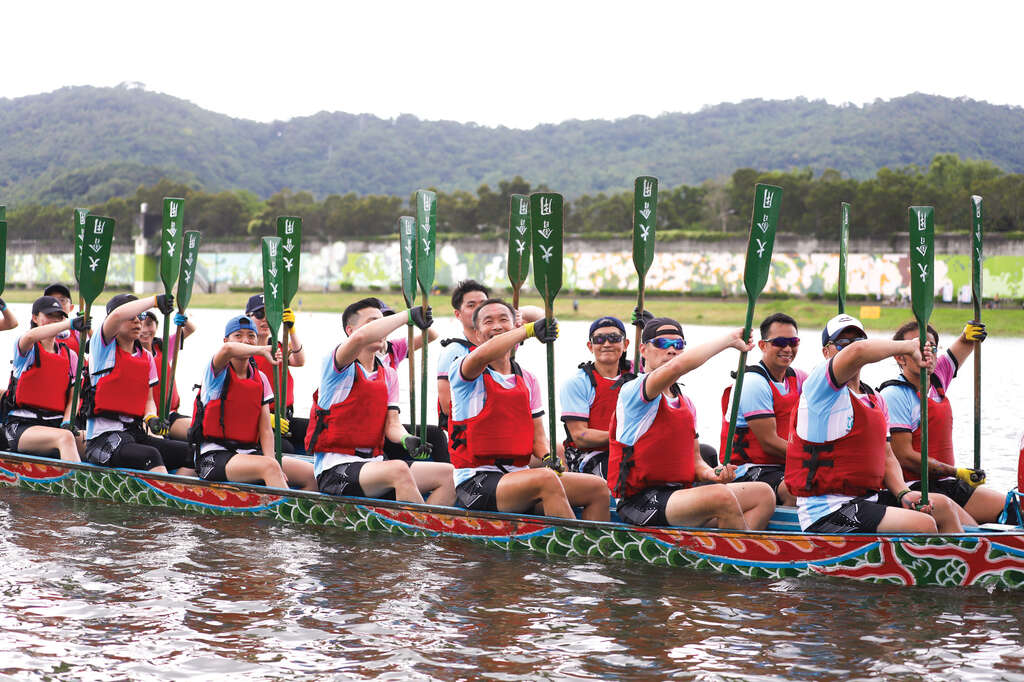
WHAT TO EAT?
Any Taiwanese celebrants who aren’t straining their vocal cords at the races will almost certainly be wolfing down zongzi (粽子) — sticky rice tamales typically stuffed with pork, salted duck egg yolk and earthy shiitake mushrooms, wrapped up in bamboo leaves. Tradition holds that the original recipe for these moreish street snacks was inspired by the rice balls villagers threw into the river after Qu Yuan. 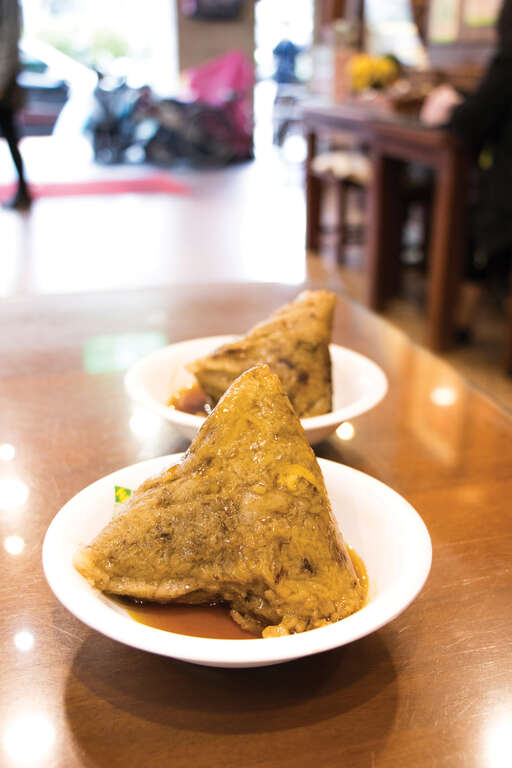
Ask any local who makes the best zongzi and they’ll probably say “my mom.” Luckily, though, there are still plenty of great spots scattered around the city for those of us who aren’t blessed with a knowledgeable Taiwanese parent. The street-snack savvy hands at Cai Wanxing (蔡萬興老店), Four Happy Rice Dumplings (四喜食品行) and Wang Ji Rice Dumplings (王記府城肉粽) have been making zongzi magic for decades and are favored by local families.
MORE CUSTOMS TO FOLLOW
Much like zongzi, the Dragon Boat Festival comes with a few strings attached. Like many Taiwanese holidays, the Dragon Boat Festival is an opportunity for evil spirits to cause havoc among the living. Thankfully, there’s plenty you can do to keep the bad energy at bay. To fight off the phantoms like a local, hang a bushel of sage-like mugwort or sweet-smelling calamus above your door or window — though preferably not if you’re staying in a hotel. You can also try to wear a fragrant sachet, a small bag full of various spices and herbs that wards off evil spirits. If you don’t have any fresh herbs handy in your suitcase, a dozen eggs may work instead. It’s also widely held that whoever can balance a chicken egg on its end at noon will receive a year’s worth of good luck. So go on, get cracking!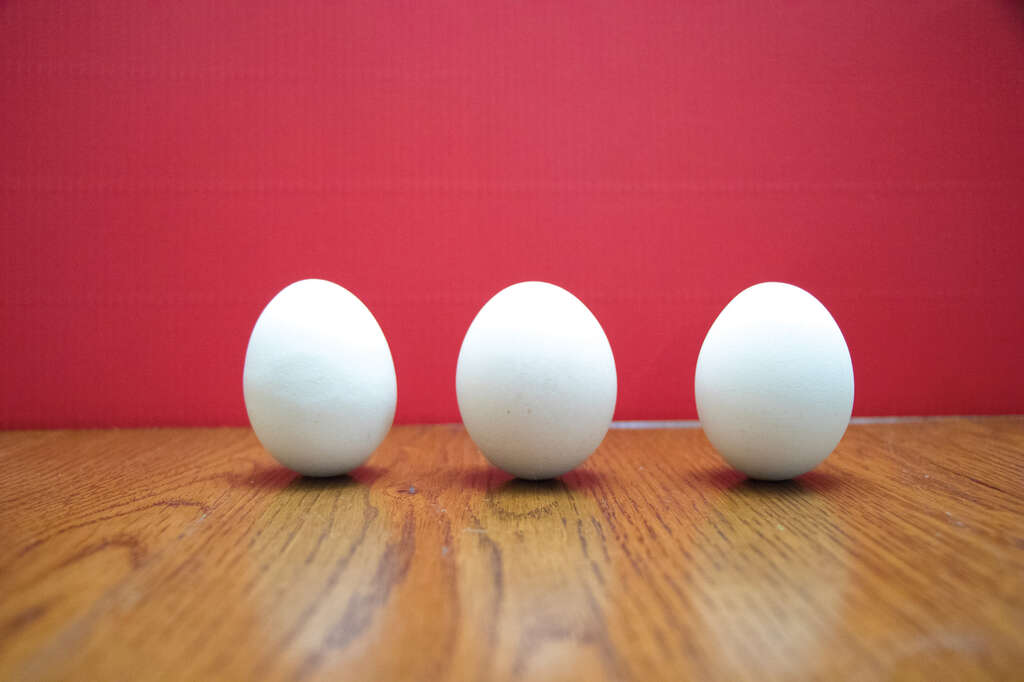
Cai Wanxing 蔡萬興老店
🏠 118, Sec. 1, Heping W. Rd., Zhongzheng Dist.
🕑 11:30am - 2:00pm、5:00pm - 9:00pm (Closed on Mondays)
Four Happy Rice Dumplings 四喜食品行
🏠 2F, 60-46, Sec. 4, Xinyi Rd., Daan Dist. (in Xinwei Market)
🕑 9:00am - 9:00pm
Wang Ji Rice Dumplings 王記府城肉粽
🏠 374, Sec. 2, Bade Rd., Songshan Dist.
🕑 10:00am - 1:00am
Gallery
Popular articles
 Four Fantastic Family Restaurants in Taipei (TAIPEI Quarterly 2020 Summer Vol.20)
Four Fantastic Family Restaurants in Taipei (TAIPEI Quarterly 2020 Summer Vol.20) Taiwanese “Teatime” — Take a Break with the Island's Sweets and Treats (TAIPEI Quarterly 2020 Summer Vol.20)
Taiwanese “Teatime” — Take a Break with the Island's Sweets and Treats (TAIPEI Quarterly 2020 Summer Vol.20) Your Guide to Taipei's Dragon Boat Festival (TAIPEI Quarterly 2020 Summer Vol.20)
Your Guide to Taipei's Dragon Boat Festival (TAIPEI Quarterly 2020 Summer Vol.20) Step Inside the Enchanting World of Picture Books (TAIPEI Quarterly 2020 Summer Vol.20)
Step Inside the Enchanting World of Picture Books (TAIPEI Quarterly 2020 Summer Vol.20) Chic Indie-Design Children's Apparel and Family-Fun in Taipei: Ángeles Studio & Shop (TAIPEI Quarterly 2020 Summer Vol.20)
Chic Indie-Design Children's Apparel and Family-Fun in Taipei: Ángeles Studio & Shop (TAIPEI Quarterly 2020 Summer Vol.20) Six Things to Do with Your Parents in Taipei (TAIPEI Quarterly 2020 Summer Vol.20)
Six Things to Do with Your Parents in Taipei (TAIPEI Quarterly 2020 Summer Vol.20)
 Your Guide to Taipei's Dragon Boat Festival (TAIPEI Quarterly 2020 Summer Vol.20)
Your Guide to Taipei's Dragon Boat Festival (TAIPEI Quarterly 2020 Summer Vol.20)